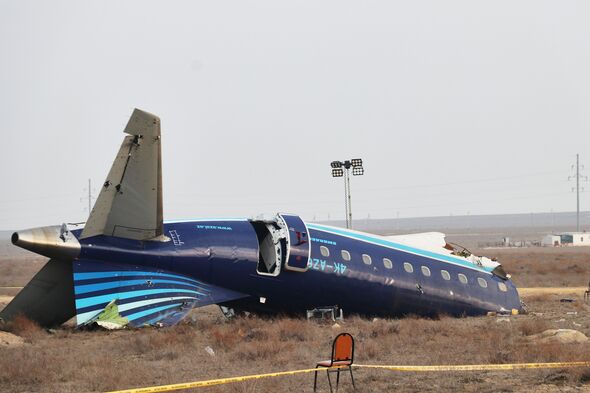
UPDATE: In a shocking revelation, Russian President Vladimir Putin has acknowledged that a catastrophic mistake by his country’s air defense systems led to the tragic crash of an Azerbaijan Airlines passenger plane, resulting in the deaths of 38 people. The Embraer E190AR was misidentified as a potential drone threat and struck by a Pantsir-S1 missile launched from the Naursky district of Chechnya.
The incident occurred in December 2025 as the aircraft was preparing to land in Grozny, the capital of Chechnya, under the leadership of warlord Ramzan Kadyrov. As the plane, with 67 people on board, faced a critical situation, air traffic control received alarming communications from the cockpit. Initial reports suggested a possible bird strike, but as the situation escalated, it became evident that the aircraft was in severe distress.
At 8:12 AM, the crew reported that they had lost both GPS systems while requesting assistance from various airports across Russia, Azerbaijan, and Kazakhstan. The captain indicated a return to their departure airport in Baku, but as the crisis unfolded, communication became increasingly frantic. Just moments later, at 8:16 AM, the pilot declared, “We have control failure, bird strike in the cockpit,” highlighting the gravity of the situation.
Ground control attempted to assist, but the crew’s distress escalated. By 8:19 AM, one of the pilots confessed, “I can’t maintain 150, we have high pressure in the cabin.” As the plane struggled to stay aloft, they attempted to divert to Makhachkala, a Russian airport on the Caspian Sea. The situation took a dire turn when, at 8:22 AM, the crew reported a failure of the hydraulics system.
The aircraft vanished from radar shortly after, only to resurface 37 minutes later while attempting to land in Aktau. According to the Russian Telegram channel VChK-OGPU, known for its close ties to security services, the attack may have originated from air defense teams loyal to Kadyrov. Reports indicate that the damage sustained by the aircraft suggests it was likely struck by a missile explosion nearby, not a bird.
This tragic event underscores the critical failures within Russia’s military protocols and air defense systems, particularly in regions experiencing heightened tensions. The implications of such a catastrophic error extend beyond immediate loss of life, raising urgent concerns over air travel safety and military accountability.
As investigations continue, experts urge immediate reforms within air defense protocols to prevent similar tragedies. The international community is watching closely as details emerge, and further updates are expected in the coming days.





